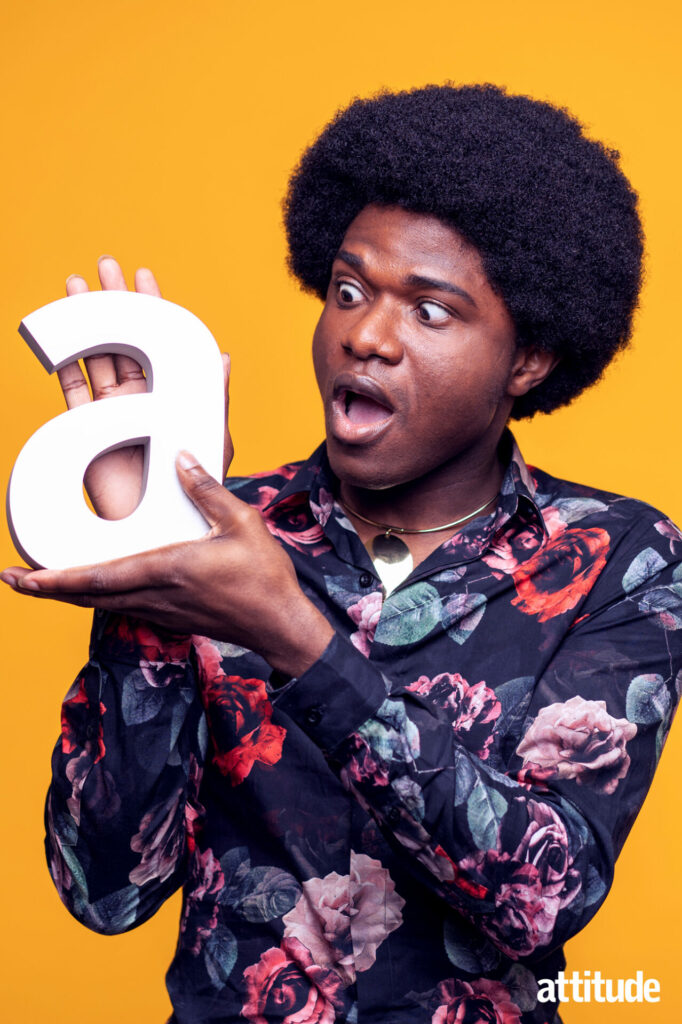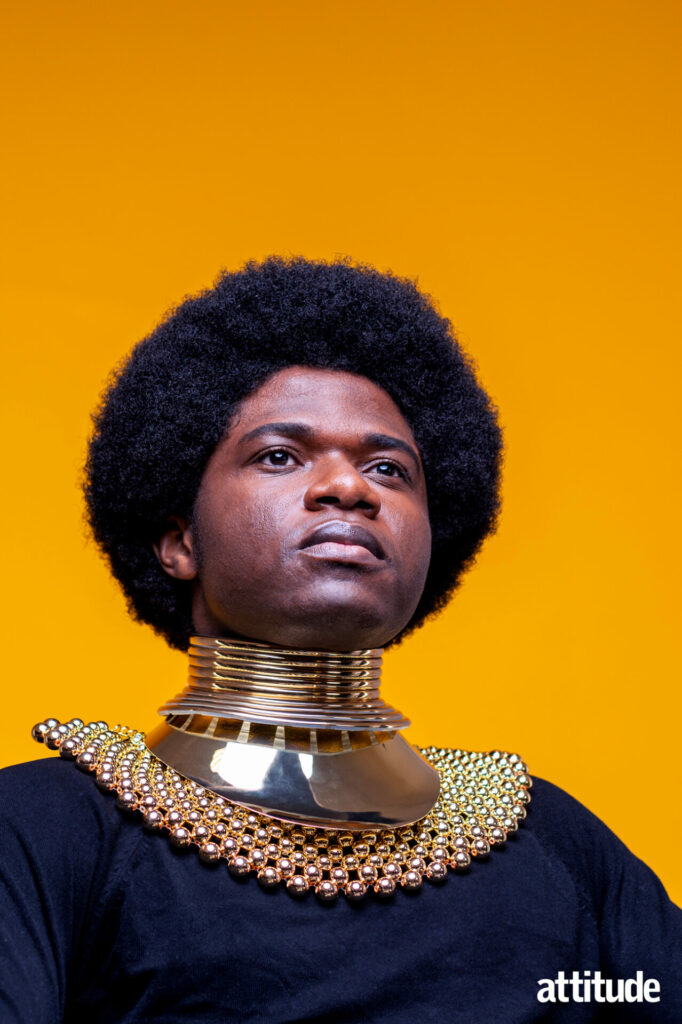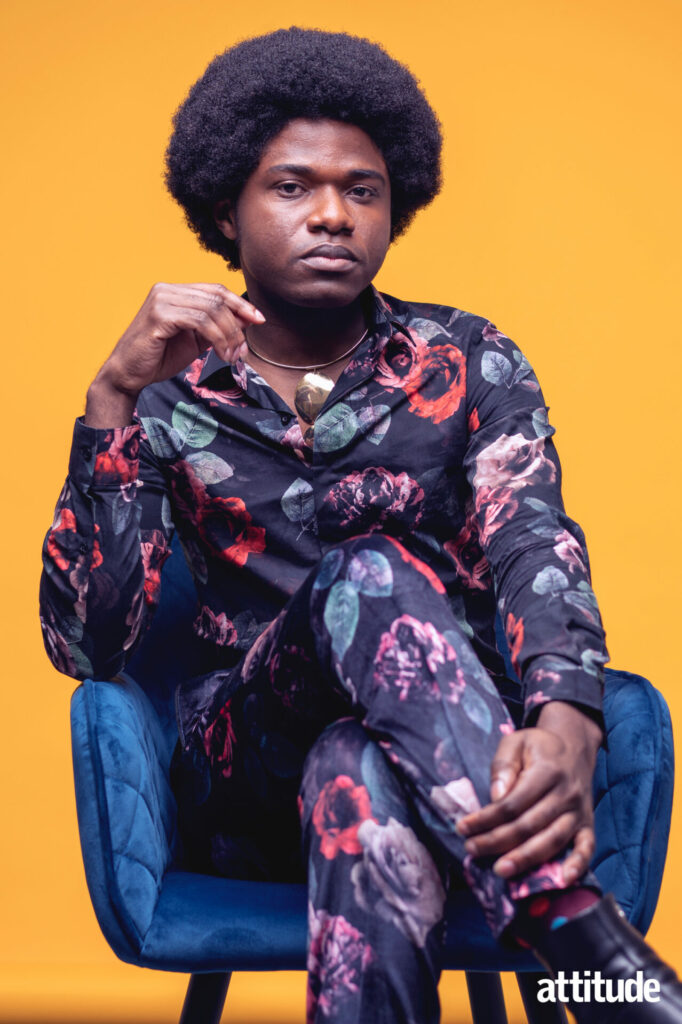Activist Joel Mordi: ‘I’m living my truth, and that’s all that matters’
The Nigerian LGBTQ+ activist has been honoured at the 2023 Attitude Pride Awards, in association with Magnum
By Dale Fox

It was soon after Joel Mordi had organised Nigeria’s first mass LGBTQ+ Pride protest at the end of 2019 that his mother told him he needed to leave the country for his own safety. Days later, he was on a flight to London.
“I was looking out of the window bawling my eyes out. The song came into my head, ‘I’m leaving, on a jet plane / Don’t know when l’ll be back again’.”
Just weeks earlier, Joel and a small contingent of allies had entered the National Assembly in Nigeria’s capital of Abuja, using his connections as the adopted son of a high-ranking Nigerian politician to enter unchallenged.

Armed with some notes and an iPhone, Joel made his way to the upper chamber of the state legislature. There, he addressed the smartphone camera to deliver a speech condemning Nigeria’s Same-Sex Marriage Prohibition Act, introduced in 2014. The stringent law not only forbids same-sex marriage, but also means any same-sex couples displaying public affection can face an individual sentence of up to 10 years in prison.
This act of brave defiance in the staunchly anti-LGBTQ+ nation was the culmination of almost four weeks of Pride protests in two regions of Nigeria, organised by the then 21-year-old Joel.
“They forget that we’re humans and very productive and good people like anyone else.”
“The whole purpose of the protest was to humanise LGBTQ+ people, as they forget that we’re humans and very productive and good people like anyone else.”
Arriving at Heathrow Airport mentally and physically exhausted, Joel was sequestered in a holding room for around 11 hours as an asylum seeker. He was then whisked to the Harmondsworth Immigration Removal Centre, Europe’s largest detention centre.
From the moment Joel set foot in the centre, he was confronted with homophobic abuse. His hostile reception was marked by slurs from detainees echoing the corridors, as he was ushered towards the room that would become his hellish home for the next five days.

On his third night at the centre, Joel says he experienced a sexual assault perpetrated by a fellow detainee. “He asked me to do things and told me that there were other people outside waiting, so if you scream, you don’t stand a chance, so I just had to do what he wanted.
“I thought that would be it, but the following night he showed up, and again, I had to give in.”
According to Joel, he reported the incidents to officers, though no action was taken. After being granted release on his fifth night and being told he was to be relocated to Cardiff by the Home Office, Joel contacted the Albert Kennedy Trust (AKT) for assistance.
“I was so excited to be in a safe space.”
“There was no way I was going with the government. This time, it had to be on my own terms, so I reached out to AKT and they collected me and took me to their office on Parr Street. Even before I entered, I could see rainbows. That was everything for me. I was so excited to be in a safe space.”
With the assistance of AKT, Joel secured temporary accommodation in various locations around London, but this came with its own set of challenges.
“I got attacked by a homophobic housemate. He broke down my door and I had to escape through the window. He was calling me ‘batty boy’ and even a pedophile. I called the police and they came the next day but said they couldn’t do anything as there wasn’t enough evidence,” he says.
Joel’s ordeal continued after the police left. “He locked the two front doors and played this Jamaican song really loudly, ‘Stay Far From We (Batty Boys)’,” he says.

Then, in early 2021, Joel received the most devastating news of his life. Back in Nigeria, his biological mother and sister had been subjected to acid attacks, leaving them with permanent facial and bodily disfigurement.
The news was only shared with Joel a year after the attacks took place, which he said were carried out in retaliation to a Pride protest organised by Joel outside the Abuja National Mosque in 2019. Following the demonstration, people in his home state of Delta had actively sought out members of his family. “Learning about that, it killed me,” says Joel. “It was just the worst. I don’t think anyone should have to go through that.”
In a separate incident, his brother was badly beaten by a group of six men, who taunted him for “having a brother who is into men.”
“I’m living my truth, and that’s all that matters.”
His biological family were also ostracized from their community, with official letters seen by Attitude banning them from even attending school because of Joel’s “questionable sexuality” and “negative influences”. Because of this, his family were compelled to relocate, beginning their lives anew elsewhere.
Today, Joel is still in temporary accommodation in London, studying a course in Refugee and Forced Migration Studies at Oxford remotely. He also heads the Mordi Ibe Foundation, a youth-focused charity based in Nigeria. It helps protect vulnerable LGBTQ+ students who are in danger of dropping out of school, among other initiatives which include assisting young women experiencing period poverty. To commend this work and more, Joel has been honoured at the 2023 Attitude Pride Awards, in association with Magnum.
Reflecting on his tumultuous journey, Joel says: “In a way, I’m happy I did what I did, you know. Nothing can touch me now. I’m living my truth, and that’s all that matters.”
The Attitude July/August issue is available to download and order in print now.
Correction: An earlier version of this article incorrectly stated that Joel had entered the Lagos State House of Assembly, not the National Assembly in Nigeria’s capital of Abuja.
